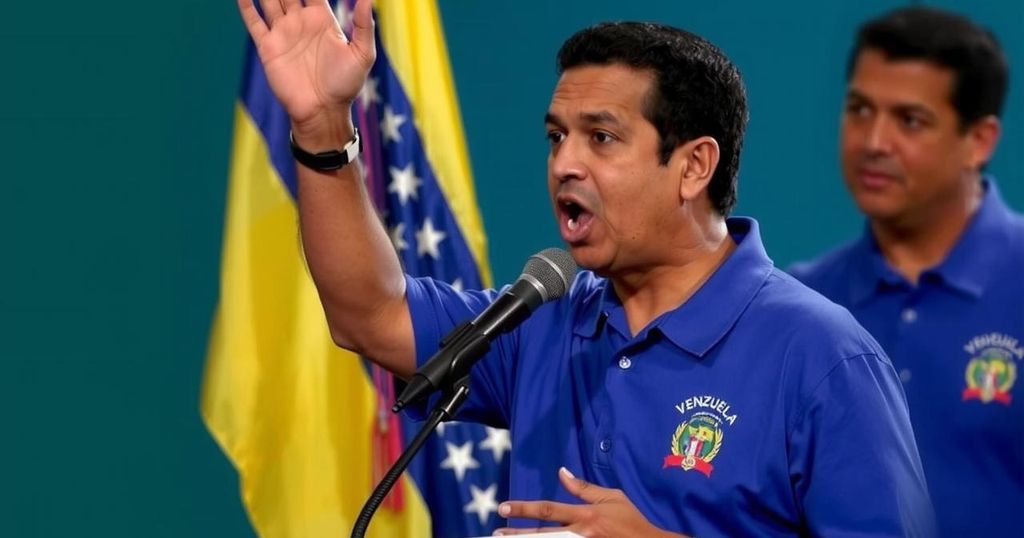The U.S. recognized Edmundo González as Venezuela’s president-elect months after a disputed election in July won by Nicolás Maduro. U.S. Secretary of State Antony Blinken highlighted the need to respect Venezuelan voters’ will. González’s victory is disputed by the Maduro regime and has sparked significant backlash and international scrutiny over election practices in Venezuela.
The U.S. government officially recognized Edmundo González, the opposition candidate, as Venezuela’s “president-elect” following a disputed election held in July. This acknowledgment comes several months after President Nicolás Maduro claimed victory, a declaration which the Biden administration has disputed, affirming that González received the highest number of votes. U.S. Secretary of State Antony Blinken emphasized the importance of respecting the wishes of Venezuelan voters in his public statements. Despite the Maduro-led electoral council declaring him the winner without providing detailed vote counts, the opposition managed to gather electronic voting records that suggested González won decisively, garnering double the votes of Maduro. However, the Venezuelan regime has faced criticism for its lack of transparency in the electoral process. González, now in exile due to arrest warrants, expressed gratitude for the U.S. recognition, highlighting it as a validation of the Venezuelan people’s desire for change. In reaction, Venezuela’s Foreign Minister, Yván Gil, criticized Blinken, recommending he reflect on his administrative shortcomings instead of attacking the Bolivarian revolution. Additionally, international observers have cast doubts on the credibility of the election results, as previous allies of Maduro, including Colombia’s President Gustavo Petro, have since distanced themselves from the legitimacy of the elections. Venezuela is poised for a continuing political crisis, especially with Maduro’s upcoming inauguration confirmed despite widespread disapproval of the electoral process.
The political context of this recognition stems from a prolonged opposition to Nicolás Maduro’s regime, which has faced allegations of electoral fraud and manipulation. The July election was particularly contentious, as it was conducted amid accusations of intimidation and lack of electoral integrity. The U.S. decision to endorse González reflects broader international concerns about democracy and governance in Venezuela, where years of economic decline and political repression have escalated public dissent. The divided political landscape, marked by internal and external pressures, shapes ongoing discussions about Venezuela’s future leadership and the legitimacy of its elections.
In summary, the U.S. recognition of Edmundo González as Venezuela’s president-elect underscores the ongoing political tensions in the country. The Biden administration’s stance not only challenges Maduro’s legitimacy but also aligns with the growing dissatisfaction voiced by many Venezuelans. As critical electoral disputes continue, the path to a stable democratic governance in Venezuela remains fraught with challenges, requiring both internal reform and international support.
Original Source: apnews.com







